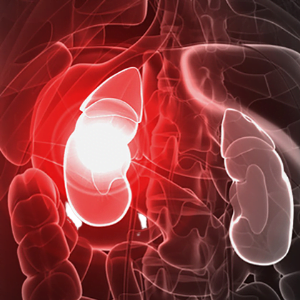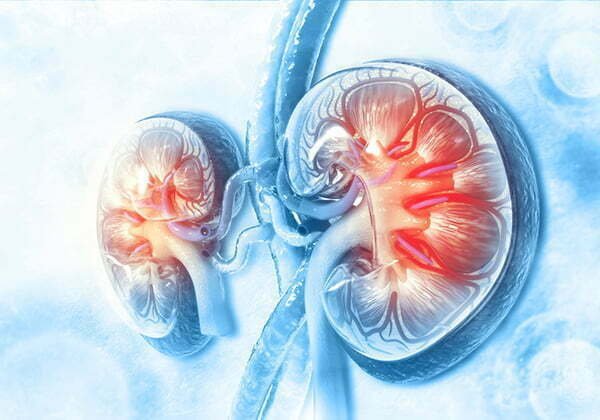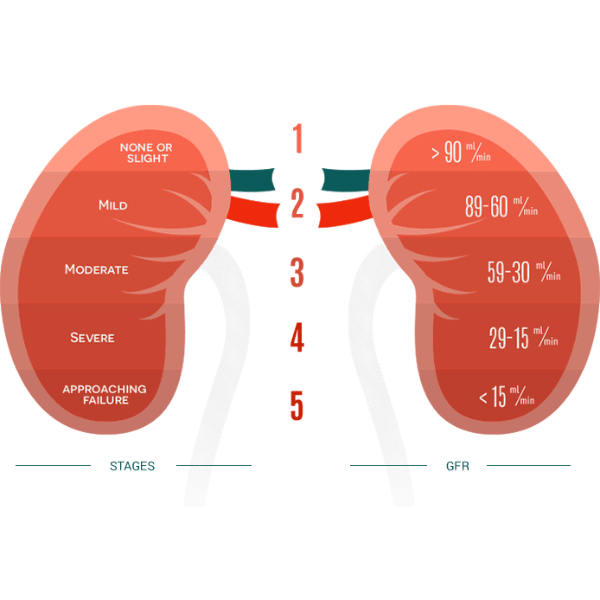
Chronic Kidney Disease (CKD)
In CKD, the damage to the kidneys is divided into 5 stages, from very mild damage in Stage 1 to kidney failure in Stage 5.
People with CKD can live normal, healthy lives if they make changes to their lifestyle and diet and take the right medicines for their condition.
High Urea & Creatinine
Urea and creatinine are waste products produced during protein metabolism. Both of these waste products are carried to the kidney and filtered into the urine.
They are measured to evaluate how well the kidney is working, an elevated urea and creatinine may indicates the kidneys are not working properly.

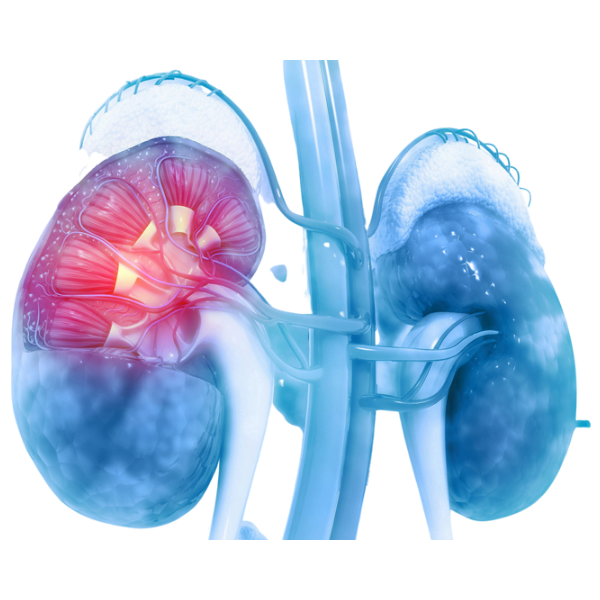
Kidney Failure
Kidney failure is when your kidneys have stopped working well enough for you to survive without dialysis or a kidney transplant. Kidneys have lost their ability to filter waste from your blood.
Kidney failure is usually caused by other health problems that have damaged your kidneys little by little for many years.
Decreased urine output
Decreased urine output, or no urine output, may occurs in the setting of Kidney failure and urinary obstruction.
As the kidneys fail or are compromised in their ability to function, the kidneys lose the ability to regulate fluids and electrolytes and to remove waste products from the body.

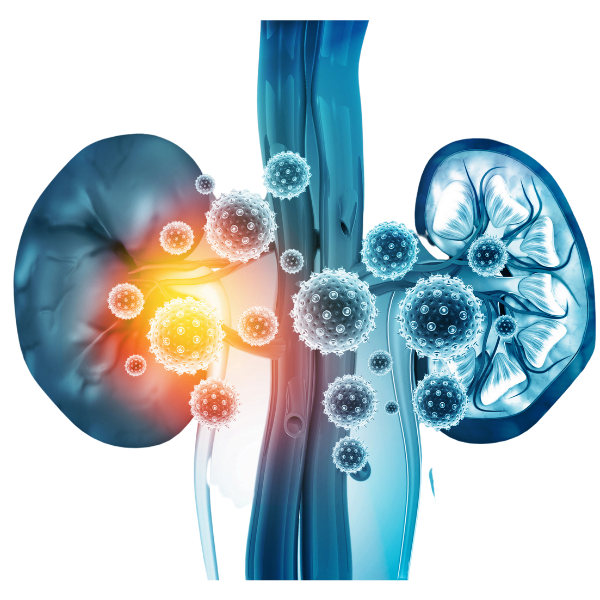
Acute Kidney Injury
Acute kidney injury (AKI) is where your kidneys suddenly stop working properly. It can range from minor loss of kidney function to complete kidney failure.
AKI normally happens as a complication of another serious illness. It’s not the result of a physical blow to the kidneys.
Diabetes with Kidney disease
Diabetes is the leading cause of kidney disease. About 1 out of 3 adults with diabetes has kidney disease.
Kidney damage caused by diabetes usually occurs slowly, over many years. You can take steps to protect your kidneys and to prevent or delay kidney damage.
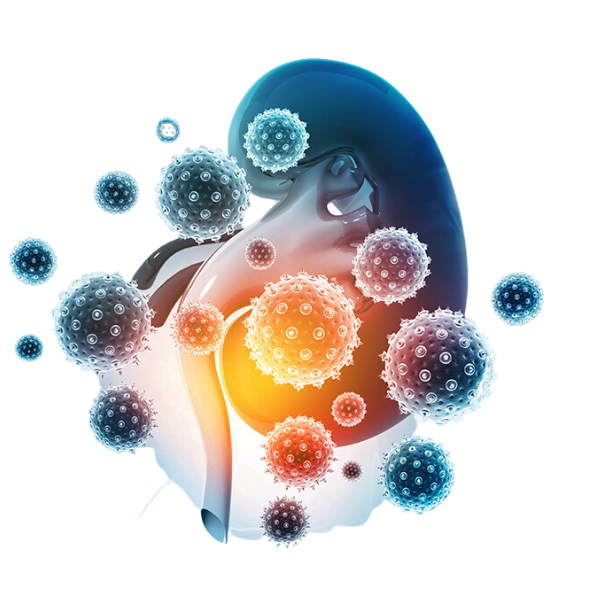
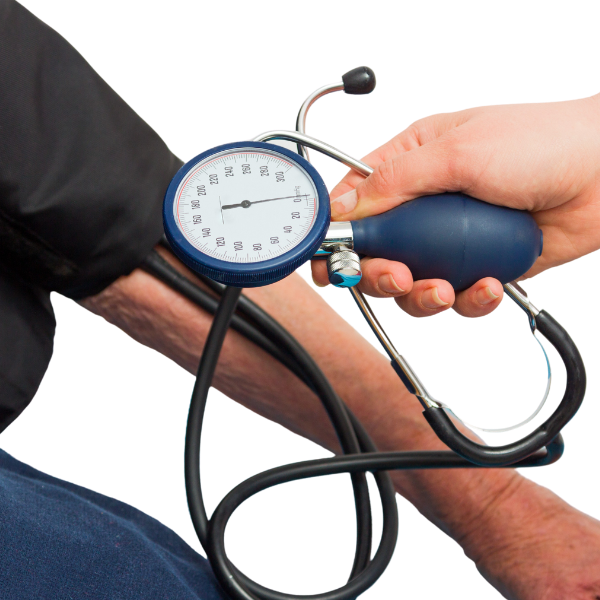
Uncontrolled Blood Pressure
Blood pressure is the force of blood pushing against the artery walls. The force is generated by each heartbeat as blood is pumped from the heart into the blood vessels.
The kidneys regulate blood pressure as well by regulating the amount of fluid and salt in the body.
Mostly, Kidneys are the cause as well as the target of this uncontrolled blood pressure especially in young adults.
Swelling of Feet / Body
Though there are several causes of swelling, if you are swelling in your legs, ankles, wrist, or even around your eyes, this could be a sign that your kidneys are not functioning properly.
This is often caused by electrolyte or other nutritional abnormalities that affect the proper filtration capacity of the kidneys. Lower extremity swelling can be a sign of kidney disease.
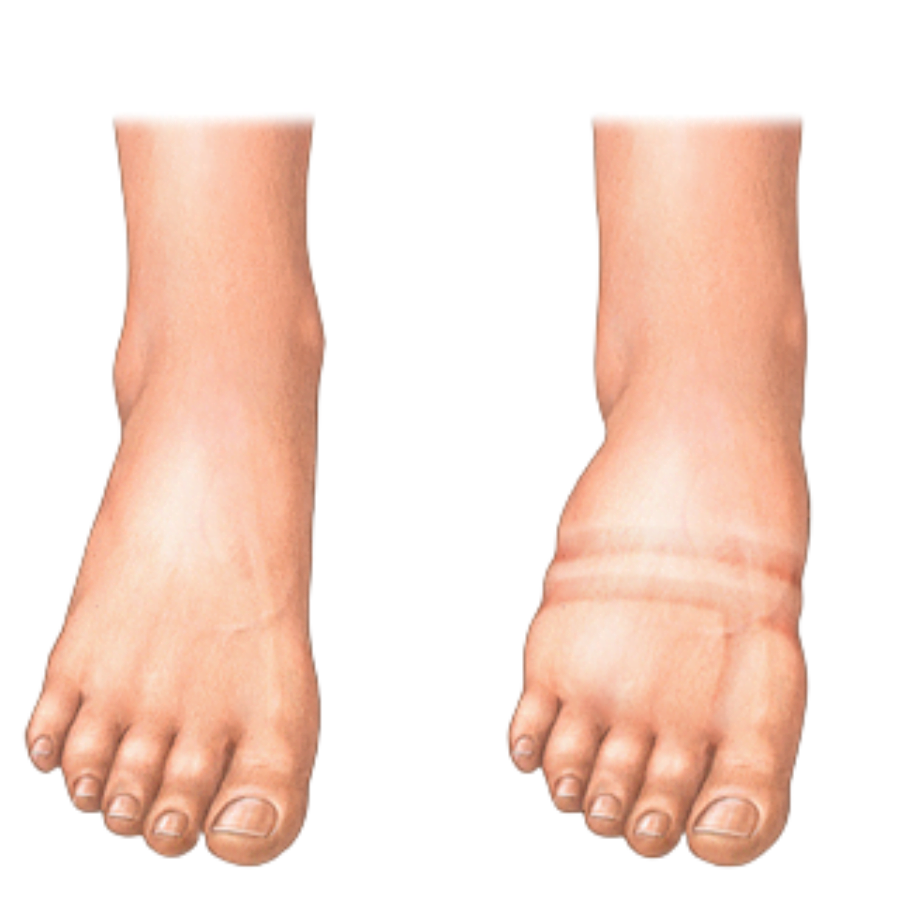

Blood / Protein leak in Urine
If there is a problem with your kidneys, protein can leak into your urine. High levels of protein in your urine over a period of time may be the first sign that kidney disease or another condition has damaged the filters in your kidneys.
Any blood in the urine can be a sign of a serious health problem, even if it happens only once. Ignoring can lead to the worsening of serious conditions like kidney disease.
Kidney Stone
Kidney stones are a risk factor for CKD, and studies are warranted to assess screening and preventive measures for CKD in stone formers.
Patients with kidney stones may need more aggressive screening for subclinical CKD, and, if identified, measures to ameliorate progression may be important.
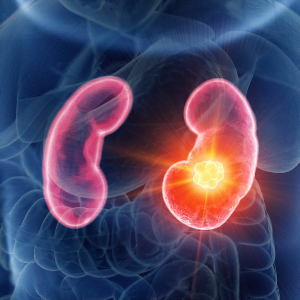

Urinary Tract Infection
A kidney infection may begin in the tube that carries urine from the body or in the bladder. Bacteria that enter the urinary tract can multiply and travel to your kidneys.
This is the most common cause of kidney infections & People with diabetes or a weak immune system are at high risk for infections.
Untreated infection can damage the kidneys and lead to long term problems. In rare cases, kidney infections can lead to kidney disease, high blood pressure, or kidney failure.
Kidney Infection
A kidney infection needs prompt medical treatment. If not treated properly, an infection can cause lasting damage to the kidneys.
Your kidneys can also become scarred, which can lead to high blood pressure, chronic kidney disease, and kidney failure.
